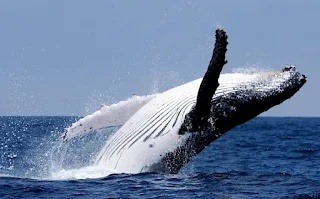Morocco rejects European bargaining Is there an alternative to the fisheries agreement?
Moroccan Foreign Minister Nasser Bourita reiterated his country's rejection of the European Union's "logic of bargaining" towards it. This was stated in a parliamentary report issued on Monday that called tension another episode in the series of negotiations on fishing agreements between the two parties.
In a report distributed by Moroccan Foreign Minister Nasser Bourita to parliamentarians on Monday, he affirmed his rejection of the “bargaining logic” that the European Union deals with Morocco over the fisheries agreement, as the European Court had initially ruled the nullity of those agreements according to appeals submitted by the separatist Polisario Front in the Sahara region. .
On the other hand, the fisheries agreement is considered the most important economic partnership between the European Union and Morocco, since its new version entered into force on July 6, 2019. Morocco if it fails to reach an agreement.
We reject European bargaining!
While presenting his ministry's draft budget for the year 2022, the Moroccan minister added that "any future agreement should be within the framework of respecting Moroccan sovereignty as a starting point for any agreement, as indicated by His Majesty King Mohammed VI in his last speech," stressing that "Morocco does not negotiate its sovereignty!" In quoting what was mentioned in the royal speech on the anniversary of the "Green March" last week.
Bourita explained that he "should get rid of the bargaining logic that Europe pursues from time to time," calling for the need to "find other alternatives for new agreements that respect Moroccan sovereignty."
The statement of the head of Moroccan diplomacy comes in the context of the European Court ruling issued on September 29, which invalidates the agriculture and fisheries agreements that bring together the European Union with Morocco. At the time, the court returned its decision to the fact that the two agreements “include products coming from the disputed territory of the Sahara between Rabat and the Polisario Front, and it came based on a lawsuit filed by the Polisario.”
In response to that decision, the foreign affairs of Morocco and the European Union issued a joint statement, in which they affirmed their determination to "take the necessary measures to ensure the legal framework for the continuation and stability of trade relations between the European Union and the Kingdom of Morocco." Bourita declared at the time that "Morocco and the European Union are fully prepared to continue cooperation."
Fateful agreement and alternatives
The fisheries agreements between Europe and Morocco are considered the most important economic partnership between the two sides, and their new version entered into force in July 2019, passing through a negotiation track similar to the current one. The European Parliament approved it by a majority of 415 votes in favour.
While that agreement includes Morocco allowing 128 European vessels to fish in its waters for a period of four years, in return for 52.2 million euros granted by the Union in return, including 93 Spanish vessels, which makes the agreement a basis for the benefit of Spanish fishermen, and any invalidity of it threatens their interests, and therefore we find many concerns prevailing in the sector Fishing in Spain in this regard.
In the same context, the Spanish Minister of Agriculture and Fishing, Luis Planas, announced last October that "the fishing agreement is a priority for Spain, because of its importance to the fishermen in our country, especially the fleets of Andalusia, the Canary Islands and Galicia." He stressed, "We work together on the basis of trust to take all necessary measures to defend our interests." It is reported that the Spanish fishermen's lobby played a major role in pressuring the federation to sign the agreement in 2018, after its negotiations faltered.
On the other hand, the Russian fleet is considered the most prominent competitor to its European counterpart for fishing in Moroccan waters, as last April was renewed the fishing agreement that brings together Rabat and Moscow, according to which it allows “Russian ships to exploit the fisheries in Morocco’s exclusive area in the Atlantic Ocean, which In which the Kingdom exercises its full sovereign rights, including the waters adjacent to the southern provinces,” in exchange for “a (Russian) financial contribution to the Kingdom,” consisting of an annual financial compensation, representing the right to exploit resources, annual fees, as well as regulatory fees for fishing licenses,” according to the government’s submission. Moroccan at that time.
Thus, Russia can be an alternative to the European Union regarding agricultural and fishing exports, as the average Moroccan agricultural exports to Russia between 2015 and 2019 amounted to about $200 million, which is equivalent to 82% of the Kingdom's total exports to Russia.
On the other hand, the marine fishing agreements between Morocco and foreign countries arouse the indignation of local fishermen, and even nullifying them is a long-dreamed hope, given the great competition of these fleets for the riches of the Moroccan coasts. According to Larbi Mhidi, president of the Moroccan Confederation of Coastal Fishing, speaking to Le Reporter , "European fishermen do not respect the terms of the agreement signed with Morocco."
Mehdi adds, stressing in this context that "if this continues, the fish reserve will not suffice until the signing of a new agreement with the Union," calling on the government to "reconsider the policy of renewing the signing of fishing agreements with the European Union, because we are threatened within a few years that we will not There are fish left in our waters to catch."






Good
ReplyDelete